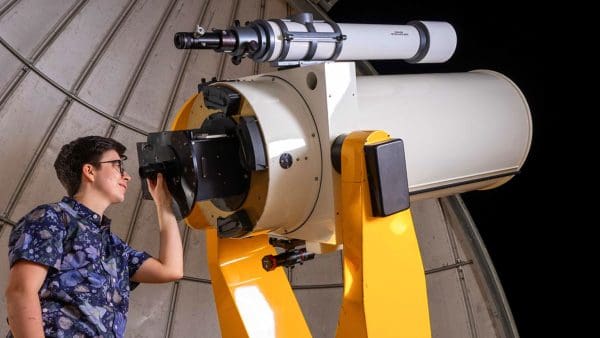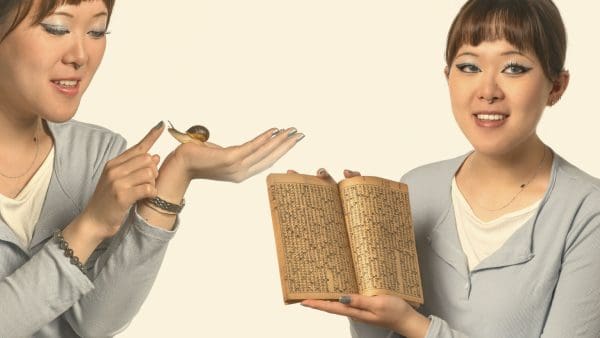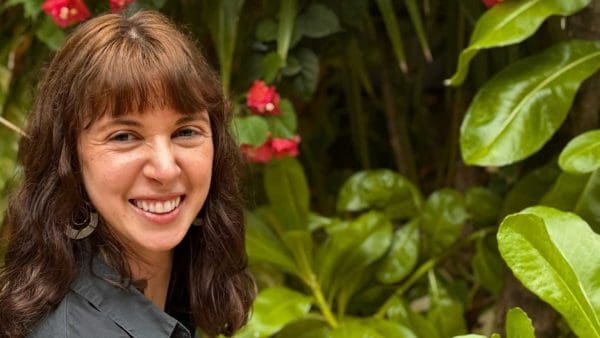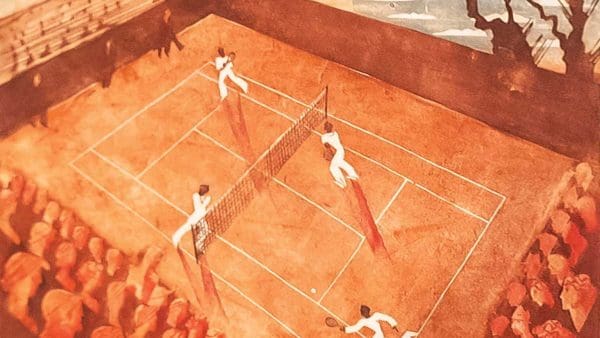It’s fairly safe to say that segments of American society are still grappling with understanding the gender identity movement, which challenges the “you’re-either-this-or-that” gender construct. And yet, over 50 years ago, writer Ursula K. Le Guin envisioned a genderless alien society in her landmark work The Left Hand of Darkness.
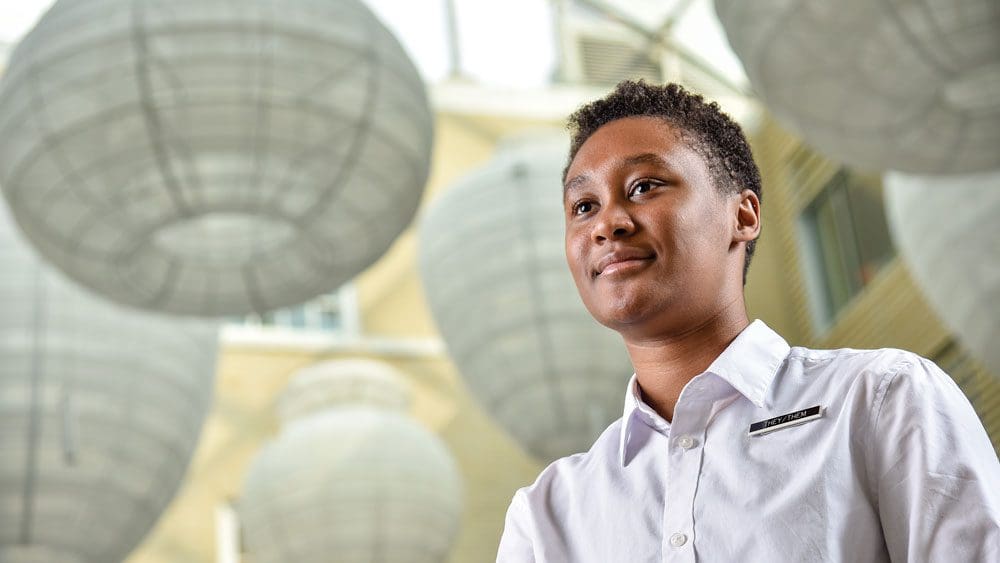
“A lot of sociological innovations and technological innovations have been preceded by being thought through in science fiction,” says junior Writing Seminars major Dominique Dickey. “That’s a really valuable function of the genre: to serve as a playground for concepts that we aren’t ready to explore in real life yet.”
But still, as sci-fi boldly goes into brave new worlds, how much baggage from the old one comes along for the ride? After all, in Le Guin’s groundbreaking work, the default pronouns are he/him, suggesting masculinity as the norm. “Is it possible to shed concepts that are so innate—like sex and gender and race and colonialism?” Dickey asks.
“How do you create worlds without those things if we’ve only lived with those things? That’s what draws me to science fiction and the question: When you create a new world, how much of our world can you consciously reject?”
—Dominique Dickey
Dickey, who identifies as nonbinary and uses gender-neutral they/them pronouns, is working on a book project titled Gender and Genre: Science Fiction from a Nonbinary Perspective. A Woodrow Wilson Fellowship has enabled them to “keep a finger on the pulse of what’s new in science fiction” and travel to a number of science fiction conferences, including the World Science Fiction Convention in 2018 and last year’s Science Fiction Writers of America’s Nebula Conference. Dickey’s book will feature a selection of critical essays analyzing science fiction texts and personal essays on Dickey’s own experience seeing or not seeing themselves in the genre.
“I like asking other marginalized people for texts that are important to them and for experiences that they’ve had that are linked to them,” Dickey says. “And then, just using that as fodder for building my own experiences.”
Dickey feels science fiction worlds are getting more diverse, in part because more diverse authors are getting published. Dickey also realizes it might be impossible to create perfect worlds on the page, as some conflict might be necessary because it’s often what makes a good story. “But, you get to a point where you have to wonder,” Dickey says, “that if we can’t imagine equality and altruism in fiction, how are we to reconcile with those concepts in real life?”

